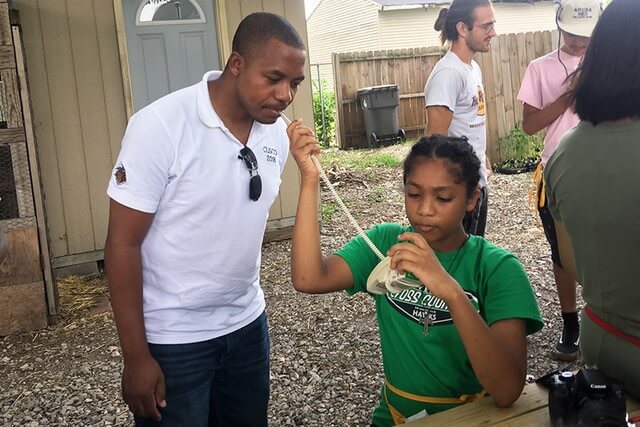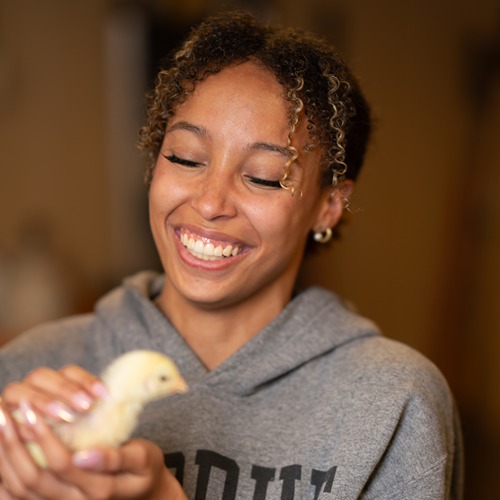Student teaches agriculture to improve children’s lives
"I had heard about Purdue when I was in Africa; how it requires you to be smart and to work extra hard, but that the university is unique,” said Theoneste Nzaranyimana, “I was inspired that if I get into this university, my dream could come true.”
Nzaranyimana’s dream took a giant leap toward reality in 2017 when he arrived at Purdue as a doctoral student with Kathryn Orvis, associate professor of Extension education and horticulture.

As a child, Nzaranyimana helped his father grow bananas, beef cattle and rice on their family farm in Rwanda.
While earning a bachelor’s degree at Africa University in Zimbabwe, he combined his love of plants with his passion for working with children. Through outreach projects in orphanages, he found that a garden offered a haven for the youth to tell their stories and develop essential skills.
As an undergraduate, Nzaranyimana interned on a farm in Illinois, his first visit to the United States. “I like talking to people,” said Nzaranyimana. “It was not easy at first, but I stayed with an incredible, welcoming family.”
Before he returned home to Africa, his host encouraged Nzaranyimana to apply to his own alma mater, Illinois State University, for graduate school.
When Nzaranyimana returned to the United States to complete a master’s degree in agriculture and a postgraduate certificate in STEM education and leadership, his host family welcomed him back.
“Outreach helped me see that my ultimate career would be working with youth in some way,” recalled Nzaranyimana.
Nzaranyimana volunteered to teach agriculture at an afterschool program for children from low-income households.
“I had this incredible mentor who told me, ‘I know you can do well in a lab, but you are an Extension person. We need to figure out how to connect you with a place you can explore Extension work.’”
They introduced Nzaranyimana to the Agricultural Sciences Education and Communication (ASEC) program at Purdue.
“I’m exploring how urban agriculture promotes life skills, entrepreneurship and healthy eating among minorities,” explained Nzaranyimana.
At the Felege Hiywot Center in Indianapolis, he used surveys and interviews to measure urban gardening’s impact on children from communities with food deserts and limited resources. Nzaranyimana evaluated their attitudes toward healthy eating, motivation to stay in school and interest in entrepreneurial opportunities. He also introduced the children to agricultural careers.
Nzaranyimana credits Orvis for providing opportunities, which have been particularly important to his professional development.
“Shifting from horticulture into agricultural education was a big jump,” he explained. “I could not have created a balance in my life at Purdue without the support of Dr. Kathryn Orvis. She trusted my ideas, and I trusted her guidance and support.”
After completing his degree this summer, Nzaranyimana intends to seek an international Extension position that will allow him to work with farmers, other Extension professionals and youth.






